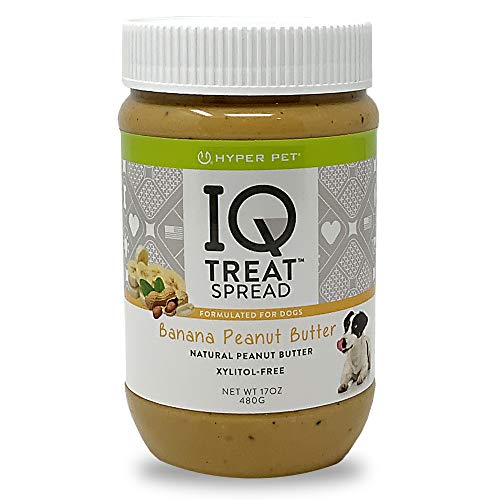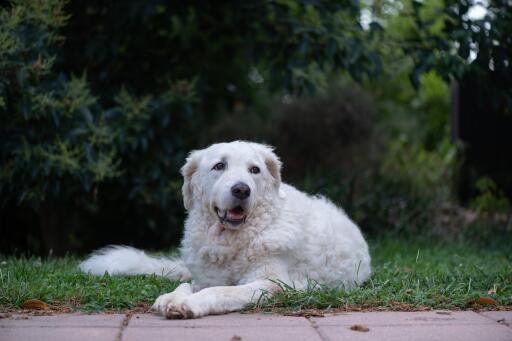
The American Kennel Club recognizes many different breeds of dogs as "herding" and "hunting" dogs. These breeds were initially bred for hunting and protection of livestock. They are today considered one of the most intelligent dog breeds. They are great watchdogs and have excellent instincts for hunting.
Doberman Pinscher
Recent research indicates that the Doberman Pinscher has the highest intelligence of all dogs. They can respond to commands over 50% of the time. This makes them extremely intelligent and great watchdogs. This breed is extremely loyal, strong, protective, and protective to their family.
Socialization improves a Doberman Pinschers instinctive intelligence. They must be able distinguish between friends and those who have malicious intent. This requires socialization from an early age. Dobermans will need to interact with other dogs, people, and other dogs in order to develop their social skills.
As one of the smartest dog breeds, the Doberman Pinscher is an excellent choice for military service and police work. Doberman Pinschers' exceptional intelligence make them a great choice as home guards. In fact, the Doberman Pinscher ranks among the top five smartest dog breeds, ranking behind the German Shepherd, Golden Retriever, and Border Collie. Stanley Coren, canine psychologist, did the research.
Labrador Retriever

The Labrador Retriever, although you may not have realized it, is one of the most intelligent dog breeds. This dog breed can learn tricks from its owners and develop new behaviors. It can open and close doors and gates. It is able to distinguish between three types intelligence: instinctive, working and adaptive. Labradors come in several colors, but no study has determined which color is more intelligent.
The Labrador Retriever is ranked among the top 10 most intelligent dog breeds according to both the American Kennel Club (AKC) and the Canadian Kennel Club. The Labrador Retriever needs fewer than five repetitions to learn a new command, and it usually obeys on the first try. This makes this breed perfect for first-time dog owners or busy families. Labradors can also be trained to obey commands, which makes them a good choice for families with young kids.
Papillon
The Papillon is a small, intelligent breed of dog that is both the most intelligent and the smallest. Its history dates back to the 14thcentury. The Papillon is a happy, loving dog. They are very agile and trainable, which makes them excellent candidates for agility trials. They weigh just 5 pounds but are very active, alert and active. Despite being small, Papillons have a strong personality and are intelligent.
Papillons are one of the most intelligent dog breeds. However, they can be more clumsy due to some limitations. First, Papillons have a soft area on their heads, which is usually closed like a baby’s. This spot can sometimes not close completely in rare cases. A Papillon could even die from an accidental blow.
Australian Cattle Dog
The Australian Cattle Dog has one of the most intelligent breeds of dog. Its intelligence has helped it to work efficiently and herd cattle. This breed is known for being loyal to its owner. Because it is so close to its owner, the "velcro dog", also known as the Australian Cattle Dog, this breed wants to be there for you. Australian Cattle Dogs have a tendency to bite because of their background as herders. This is dangerous, especially if it's not taught properly during puppyhood.

Australian Cattle Dogs are highly trainable dogs. They love socialization and obedience training. While they can be stubborn at times, they respond best to positive reinforcement techniques. These dogs make great canine athletes. They are great farm working dogs that are good at property patrol and herding livestock.
Poodle
The Poodle is one of the most intelligent dog breeds. Their emotional intelligence and empathy for humans are what make them so popular. It is because they have been around people for many years. This has taught them how to read and interpret human body language. They are wonderful family companions.
According to scientific studies, Poodles are among the smartest dog breeds. They can recall commands easily and have great recall. They are loved for their kindness and loyalty. Poodles are so smart that they rank right behind Border Collies.
FAQ
How long should a dog stay indoors?
Dogs are curious by nature. Dogs require an outlet for their curiosity. They may be destructive if they don’t have any outlets. This can cause damage to property and injuries to people.
Dogs should always be kept on a leash when outside. Dogs should be kept on a leash when they are outside to prevent them from getting into trouble and allow them to explore the environment safely.
He will be bored and uninterested if you keep him indoors all day. He will be more interested in chewing furniture than other objects. He will have too many nails and could end up with health problems.
This will help you avoid any negative consequences. You can take your dog for a walk in the neighborhood, ride in the car or to the park.
This will give him something to do and help him burn some energy.
What amount should I spend on my pet?
One good rule of thumb: Budget around $200-$300 per Month.
However, it varies based on where you live. For example, in New York City, you'd probably spend about $350 per month.
In rural areas, however you may only need $100 per calendar month.
You should remember to buy high-quality items like collars, leashes, toys, and the like.
A crate is a great investment for your pet. This will keep your pet safe when he is being transported.
How to feed your pet?
Cats and dogs eat four times per day. Breakfast is made up of dry kibble. Lunch is usually some kind of meat like chicken and beef. Most dinners include some type of vegetable, such as broccoli or peas.
Cats have specific dietary needs. Canadian foods should be included in their diet. These can include chicken, salmon, tuna and sardines.
It is possible for your pet to enjoy fruits and veggies. But, your pet shouldn't eat them too often. Overeating can cause illness in cats.
You shouldn't allow your pet water right from the faucet. Instead, let him have water from a bowl.
Make sure that your pet gets enough exercise. Exercise can help your pet lose weight. Exercise keeps him fit and healthy.
After you have given your pet food, clean up the dishes. This prevents your pet from ingesting harmful bacteria.
Don't forget to brush your pet regularly. Brushing helps remove dead skin cells and can lead to infection.
Your pet should be brushed at least twice per week. Use a soft bristle brush. Avoid using a wire brush. It can cause irreparable damage to your pet’s teeth.
Always supervise your pet while he eats. He should be able to properly chew his food. Otherwise, he could choke on pieces of bone.
Keep your pet out of garbage cans. This can cause health problems in your pet.
You should never leave your pet in an enclosed area. This applies to hot tubs, boats, cars, and other enclosed spaces.
Should I spay/neuter/neuter my dog or not?
Yes! Spaying and neutering your dog is very important.
Not only does it reduce the number of unwanted puppies in the world, but it also reduces the risk of certain diseases.
In female dogs, the chance of developing breast cancer is higher than it is in male dogs.
Testicular cancer is more common in males than it is in females.
Your pet's spaying and neutering will also stop her having babies.
What is pet assurance?
Pet Insurance provides financial protection for pets when they are sick or injured. It also covers routine care such as vaccinations or spaying/neutering.
You can also get emergency treatment for your pet if it is in an accident or becomes sick.
There are two types:
-
Catastrophic - This type of insurance pays for medical expenses if your cat suffers serious injuries.
-
Non-catastrophic - This type covers routine veterinary costs, including vaccines, microchips, and spays/neuters.
Certain companies offer both catastrophic coverage and non-catastrophic. Some companies offer only one type of coverage.
To cover these costs you will need to pay a monthly Premium. This amount will depend on how much you spend to care for your pet.
The price of insurance depends on which company you choose. So shop around before buying.
You may be eligible for discounts if more than one policy is purchased by the company.
You can transfer your pet insurance plan to another company if you are already insured.
If you don't want to purchase pet insurance, you will have to pay all the costs yourself.
You can still save money. You can ask your veterinarian about discounts.
He might discount you if you bring your pet to see him frequently.
Instead of spending money on a pet, you could adopt one from an animal shelter.
Do not forget to read the fine print.
This will give you an accurate estimate of the value of your coverage. Contact the insurer immediately if you are unsure.
What should you consider when getting a pet?
You must first consider what kind lifestyle you wish for yourself, your family, and your friends. Do you have children? How many children do you have? What age are they now? Are there any special dietary preferences?
Are you concerned about allergies? Is there any additional information you need about your pet?
After answering these questions, consider whether you are looking for an active companion or a calm lap dog, a house-trained pet, or a tank of tropical fish.
If you are thinking about adopting a puppy, be sure to go to a shelter or rescue group to get to know them.
You'll also want to know if the animal has been vaccinated against rabies and other diseases.
Next, check with the owner to see if he/she will take care your animal while you're on vacation. This will allow you to leave your pet at home and not worry about it.
Keep in mind that pets are part and parcel of your family.
Should I get a kitten or a puppy?
It really depends on who you are. Some people prefer puppies while others like kittens.
In general, however, puppies are more active and playful. Kittens usually sleep a lot and are very gentle.
Both types of animals require lots of attention from their owners. They will grow up quickly and need a lot of care.
They will also need regular medical checkups. You will need to take them to the vet regularly.
Statistics
- Pet insurance helps pay for your pet's medical care, with many policies covering up to 90 percent of your vet bills. (money.com)
- In fact, according to ASPCA, first-year expenses can sum up to nearly $2,000. (petplay.com)
- Monthly costs are for a one-year-old female mixed-breed dog and an under one-year-old male domestic shorthair cat, respectively, in excellent health residing in Texas, with a $500 annual deductible, $5,000 annual benefit limit, and 90% reimbursement rate. (usnews.com)
- * Monthly costs are for a 1-year-old female mixed-breed dog and a male domestic shorthair cat less than a year old, respectively, in excellent health residing in Texas, with a $500 annual deductible, $5,000 annual benefit limit, and 90% reimbursement rate. (usnews.com)
- It's among a relatively few companies that provide policies with a full (100%) coverage option, meaning you are not responsible for any co-payment of bills. (money.com)
External Links
How To
The best way for a dog to learn where it should go to urinate is by teaching him.
Teaching your pet to use the bathroom correctly is crucial. It is also crucial to be able to teach them how to behave if they decide to go outside on their own. Here are some tips to help you teach your dog how to use the bathroom properly.
-
Training should be started early. Training early is key if you want to avoid accidents during playtime
-
You can reward your pet with food. It will increase your chances of success if you reward your pet for each successful trip to a potty.
-
Avoid giving treats to your pet's pee spot. This could make your pet associate urine smells with his favorite treats.
-
Before you allow your dog outside, make sure that no other animal is nearby. Dogs that see other dogs relieve themselves might think this is normal.
-
Be patient. It may take your puppy a while to get the hang of things than an adult.
-
Before you allow your dog to use the bathroom, be sure she has a good sniff of everything. It's easier for her to learn if she has a chance first to smell the toilet.
-
Don't let your dog stand next to the toilet while you're taking care of business. It could cause confusion.
-
Once you're finished, wipe down the toilet bowl and the floor. These areas will act as a reminder of what to do later.
-
Clean up any messes immediately. Make sure your dog is completely clean after an accident. The dog might attempt to vomit again if it isn't cleaned up quickly.